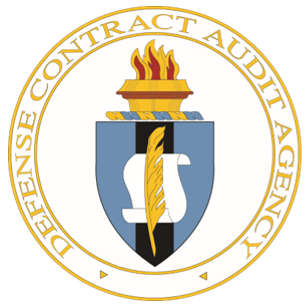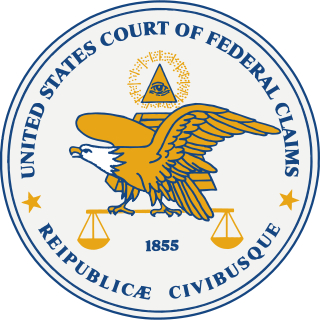
The Sarbanes–Oxley Act of 2002 is a United States federal law that mandates certain practices in financial record keeping and reporting for corporations.
Adjudication is the legal process by which an arbiter or judge reviews evidence and argumentation, including legal reasoning set forth by opposing parties or litigants, to come to a decision which determines rights and obligations between the parties involved.
Overtime is the amount of time someone works beyond normal working hours. The term is also used for the pay received for this time. Normal hours may be determined in several ways:

The Health Insurance Portability and Accountability Act of 1996 is a United States federal statute enacted by the 104th United States Congress and signed into law by President Bill Clinton on August 21, 1996. It modernized the flow of healthcare information, stipulates how personally identifiable information maintained by the healthcare and healthcare insurance industries should be protected from fraud and theft, and addressed some limitations on healthcare insurance coverage. It generally prohibits healthcare providers and healthcare businesses, called covered entities, from disclosing protected information to anyone other than a patient and the patient's authorized representatives without their consent. With limited exceptions, it does not restrict patients from receiving information about themselves. It does not prohibit patients from voluntarily sharing their health information however they choose, nor – if they disclose medical information to family members, friends, or other individuals not a part of a covered entity – legally require anyone except covered healthcare entities to maintain confidentiality.

The Employee Retirement Income Security Act of 1974 (ERISA) is a federal United States tax and labor law that establishes minimum standards for pension plans in private industry. It contains rules on the federal income tax effects of transactions associated with employee benefit plans. ERISA was enacted to protect the interests of employee benefit plan participants and their beneficiaries by:
United States non-profit laws relate to taxation, the special problems of an organization which does not have profit as its primary motivation, and prevention of charitable fraud. Some non-profit organizations can broadly be described as "charities" — like the American Red Cross. Some are strictly for the private benefit of the members — like country clubs, or condominium associations. Others fall somewhere in between — like labor unions, chambers of commerce, or cooperative electric companies. Each presents unique legal issues.

The Bayh–Dole Act or Patent and Trademark Law Amendments Act is United States legislation dealing with inventions arising from federal government-funded research. Sponsored by two senators, Birch Bayh of Indiana and Bob Dole of Kansas, the Act was adopted in 1980, is codified at 94 Stat. 3015, and in 35 U.S.C. § 200–212, and is implemented by 37 C.F.R. 401 for federal funding agreements with contractors and 37 C.F.R 404 for licensing of inventions owned by the federal government.

Employee benefits and benefits in kind include various types of non-wage compensation provided to employees in addition to their normal wages or salaries. Instances where an employee exchanges (cash) wages for some other form of benefit is generally referred to as a "salary packaging" or "salary exchange" arrangement. In most countries, most kinds of employee benefits are taxable to at least some degree. Examples of these benefits include: housing furnished or not, with or without free utilities; group insurance ; disability income protection; retirement benefits; daycare; tuition reimbursement; sick leave; vacation ; social security; profit sharing; employer student loan contributions; conveyancing; long service leave; domestic help (servants); and other specialized benefits.

The Defense Contract Audit Agency (DCAA) is an agency of the United States Department of Defense under the direction of the Under Secretary of Defense (Comptroller). It was established in 1965 to perform all contract audits for the Department of Defense. Previously, the various branches of military service were responsible for their own contract audits.

Securities regulation in the United States is the field of U.S. law that covers transactions and other dealings with securities. The term is usually understood to include both federal and state-level regulation by governmental regulatory agencies, but sometimes may also encompass listing requirements of exchanges like the New York Stock Exchange and rules of self-regulatory organizations like the Financial Industry Regulatory Authority (FINRA).
The Federal Acquisition Regulation (FAR) is the principal set of rules regarding Government procurement in the United States, and is codified at Chapter 1 of Title 48 of the Code of Federal Regulations, 48 CFR 1. It covers many of the contracts issued by the US military and NASA, as well as US civilian federal agencies.

Tricare is a health care program of the United States Department of Defense Military Health System. Tricare provides civilian health benefits for U.S Armed Forces military personnel, military retirees, and their dependents, including some members of the Reserve Component. Tricare is the civilian care component of the Military Health System, although historically it also included health care delivered in military medical treatment facilities. Tricare functions similar to a single-payer healthcare system.

A financial adviser or financial advisor is a professional who provides financial services to clients based on their financial situation. In many countries, financial advisors must complete specific training and be registered with a regulatory body in order to provide advice.
The processes of government procurement in the United States enable federal, state and local government bodies in the United States to acquire goods, services, and interests in real property.

The Real Estate Settlement Procedures Act (RESPA) was a law passed by the United States Congress in 1974 and codified as Title 12, Chapter 27 of the United States Code, 12 U.S.C. §§ 2601–2617. The main objective was to protect homeowners by assisting them in becoming better educated while shopping for real estate services, and eliminating kickbacks and referral fees which add unnecessary costs to settlement services. RESPA requires lenders and others involved in mortgage lending to provide borrowers with pertinent and timely disclosures regarding the nature and costs of a real estate settlement process. RESPA was also designed to prohibit potentially abusive practices such as kickbacks and referral fees, the practice of dual tracking, and imposes limitations on the use of escrow accounts.
The Australian Accounting Standards Board (AASB) is an Australian Government agency that develops and maintains financial reporting standards applicable to entities in the private and public sectors of the Australian economy. Also, the AASB contributes to the development of global financial reporting standards and facilitates the participation of the Australian community in global standard setting. The AASB's functions and powers are set out in the Australian Securities and Investments Commission Act 2001.

In the United States, the Single Audit, Subpart F of the OMB Uniform Guidance, is a rigorous, organization-wide audit or examination of an entity that expends $750,000 or more of federal assistance received for its operations. Usually performed annually, the Single Audit's objective is to provide assurance to the US federal government as to the management and use of such funds by recipients such as states, cities, universities, non-profit organizations, and Indian Tribes. The audit is typically performed by an independent certified public accountant (CPA) and encompasses both financial and compliance components. The Single Audits must be submitted to the Federal Audit Clearinghouse along with a data collection form, Form SF-SAC.
In the United States, compliance requirements are a series of directives United States federal government agencies established that summarize hundreds of federal laws and regulations applicable to federal assistance. They are currently incorporated into the OMB A-133 Compliance Supplement, which was created by the US Office of Management and Budget (OMB).

The Pension Protection Act of 2006, 120 Stat. 780, was signed into law by U.S. President George W. Bush on August 17, 2006.

G.L. Christian and Associates v. United States is a 1963 United States Federal Acquisition Regulation (FAR) court case which has become known as the Christian Doctrine. The case held that standard clauses established by regulations may be considered as being in every Federal contract. Because the FAR is the law, and government contractors are presumed to be familiar with the FAR, a mandatory clause that expresses a significant or deeply ingrained strand of public procurement policy will be incorporated into a Government contract by operation of law, even if the parties intentionally omitted it.







